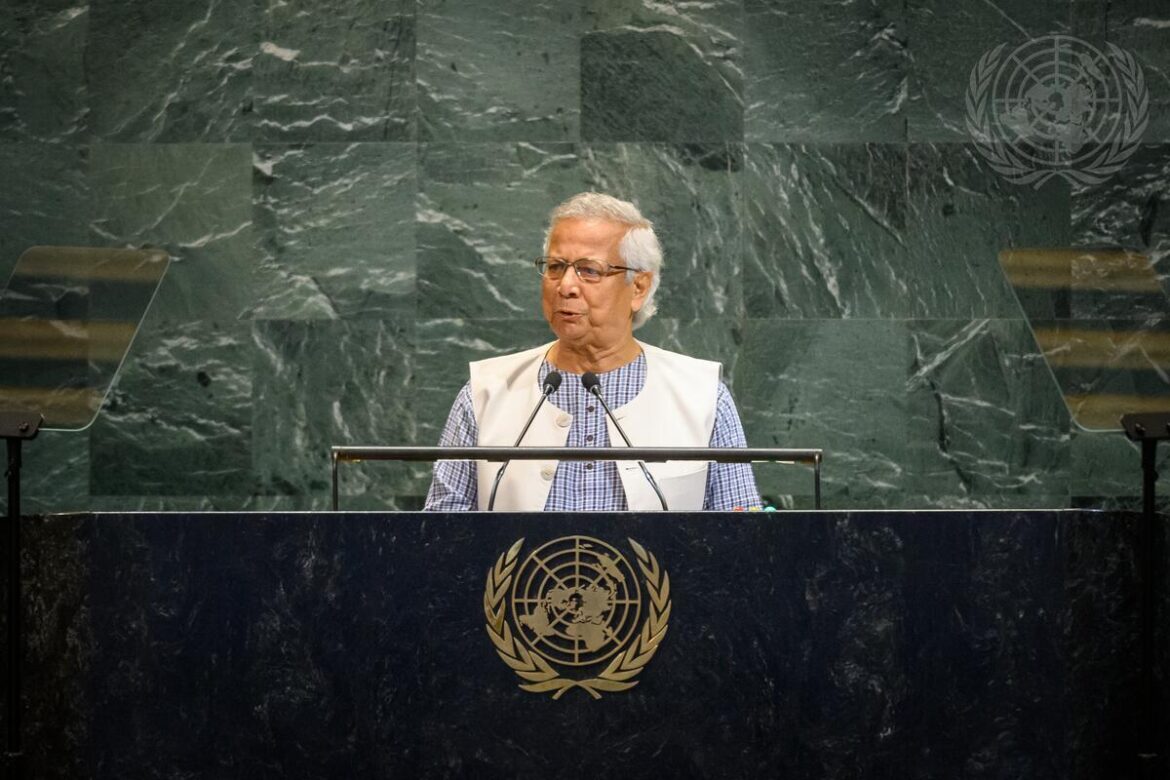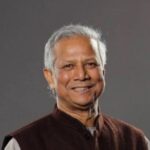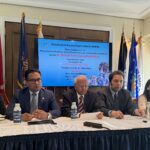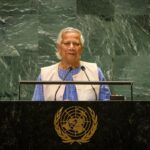Bangladesh’s Chief Advisor, Muhammad Yunus, used his address at the 80th session of the United Nations General Assembly (UNGA) on September 26, 2025, to highlight the country’s sweeping reforms since the July 2024 uprising, while also reflecting on the UN’s achievements and challenges in an increasingly complex world.
Tracing the global body’s evolution, Yunus praised its critical role in advancing peace, security, human rights, and equality. He cited its humanitarian contributions, noting that “because of the UN today, more than 100 and 30 million vulnerable people in 120 countries receive urgent food and humanitarian support. Nearly 45 per cent of the world’s children are immunized through its efforts.”
At the same time, he acknowledged its shortcomings. “We have also witnessed the limitations of the UN in resolving conflicts between states and in confronting major global challenges. Yet on the whole, its role has been overwhelmingly positive and beneficial for humanity.”
Reflecting on Bangladesh’s transformation since the uprising, Yunus said last year he had shared the nation’s “aspirations for transformation” with member states. “Today, I stand here to tell you how far we have come on that journey,” he noted, emphasizing the role of Bangladesh’s youth who “stood up” against “tyranny” and opened the path to building a just and equal society.
Yunus detailed the creation of 11 independent commissions on governance, judiciary, elections, public administration, law enforcement, anti-corruption, women’s rights, and other areas. To ensure reforms endure, a national consensus commission brought together more than 30 political parties to adopt a “July Declaration,” a time-bound pledge guaranteeing that reforms will not be reversed regardless of election outcomes.
“We could have chosen the easy path, reforms imposed by executive order, but we chose the hard path, reforms built through inclusion and sustained through consensus, we chose the path that endures,” Yunus said. “Our goal is clear, to create a democratic order where power is balanced, where no autocrat can ever return, where no elected leader can destroy democracy, and where those who are meant to protect the people can never again play upon them.”
Looking ahead to elections scheduled for February 2026, Yunus stressed that reforms remain citizen-centered, with priorities on transparency, accountability, and the rule of law.
He also underscored steps taken to address past abuses, recalling his invitation to the UN High Commissioner for Human Rights to investigate atrocities committed under the previous regime. The findings and recommendations, he said, have been integrated into Bangladesh’s national reform agenda, including accession to the International Convention for the Protection of All Persons from Enforced Disappearance.
Beyond domestic reforms, Yunus called for stronger international cooperation to recover stolen assets, curb illicit financial flows, and protect developing countries from resource exploitation. He emphasized Bangladesh’s commitment to safe and orderly migration, youth empowerment through education and technology, and climate action – including new nationally determined contributions to be announced at COP30.
He urged the global community to provide urgent support for Rohingya refugees in Myanmar, warning of a potential collapse of camps due to dwindling resources.
On broader global issues, he called for nuclear-weapon-free zones in South Asia and the Middle East, renewed regional cooperation through the South Asian Association for Regional Cooperation, and immediate implementation of a two-state solution for Palestine with East Jerusalem as its capital.
Yunus also highlighted the growing risks of technological inequality. “One of Bangladesh’s deepest concerns,” he warned, “is the widening Digital Divide facing youth in the developing world.” Emerging technologies such as artificial intelligence, quantum computing, and advanced communication systems, he stressed, must not deepen exclusion.
“If not, we risk creating an entire generation who will see themselves as excluded, marginalized and treated unjustly. Such a generation will be vulnerable to every harmful temptation…” he cautioned.
As Bangladesh celebrates the first anniversary of the uprising and the 30th anniversary of the World Programme of Action for Youth, Yunus positioned his country as both a reforming nation at home and a voice for equity and justice abroad.






